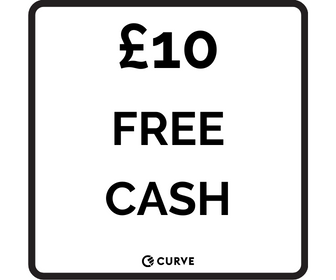What goes into my credit score and how do I improve it?
Posted on
Although it is common knowledge that if you're an adult who has ever engaged with credit you have a credit score, it is less well known what exactly that means. What is your credit score? Why does it matter? What determines what your credit score actually is? If you have any of these questions, don't worry, you're not alone. For something so important, it is often misunderstood by the average person.
In short, your credit score is a rating of how responsible you've been with credit. There are many factors that decide your credit score, and while the effect of some is obvious, as is what constitutes good behaviour, for others it can be more confusing. You may think that only having a couple open lines of credit is a good sign, for example, since it means you aren't overleveraged, however that can actually hurt you on multiple metrics involved in your score. If you have questions about your score and how to raise it, here's what you need to know about the six key metrics involved in determining your score.
Payment history (high priority)
The most important part of anybody's credit report is their ability to consistently make their credit payments. Not only does not missing any payments, which means never falling more than 30 days behind on a given account, ensure that you maintain a good rating for your payment history, it also contributes to other key categories including your credit utilisation and derogatory marks. Derogatory marks represent a credit risk to lenders which will affect your ability to obtain future credit.
The good news is that it is also one of the most straight forward fixes you an ask for. While you can't correct any errors in the past, and it can take years for them to fully fall off of your report, improving your score for payment history is as simple as always paying your minimum payments on all accounts every month. If possible, set up automatic bill pay with direct debits and standing orders so there's no chance of missing a payment date. The longer you maintain this record, the stronger your payment history rating will look, and your score will go up to match.
Credit card utilisation (high priority)
Although your credit report includes credit lines of many types, your credit cards receive special attention in the form of your credit utilisation. The utilisation rating represents the percentage of available credit on your credit cards that you are currently using, You should always attempt to keep your utilisation as low as possible, and anything over 30-percent will begin to have more severe effects on your overall rating.
Because this is such an important part of your score, you should look to lower your utilisation as much as possible. After your first priority of making all your monthly payments, your next biggest goal should be to reduce your cards as much as possible by committing any extra money in your credit budget to paying down your highest-interest card. You should also keep any zeroed-out cards open so that they are adding to your total available while not raising your total used at all.
Always use your credit card, where possible, for recurring payments that you can pay back in full every month, things such as fuel and car insurance. This will create a positive payment history. It’s also useful to use a credit card to pay one-off expenses like a car accident lawyer, the secret is to pay off credit card expenses routinely.
Derogatory marks (high priority)
The final part of the triumvirate of key indicators is similarly affected by your payment history. A derogatory mark occurs when you fall so far behind on payment with a creditor that they send you in for collections. This has an extremely strong negative effect and should be avoided at all costs.
If you find that you are nearing collections with one of your accounts, get in touch with your creditor immediately. They may be able to come to terms with you on a payment plan that allows you to make a payment and avoid the mark. If you have any outstanding marks, you should similarly contact and see if there is a way to pay off the remainder or reach a deal to have it removed.
Credit history age (medium priority)
Even if everything on your credit report is strong, if it only stretches back a few months, you are unlikely to be scoring very high on your report because there is not enough of a track record to assure lenders your good habits will continue. Ideally, lenders will like to see a history stretching more than seven years, as many of the indicators on your report remain for that long, so it shows that they are getting the full story on you.
Unfortunately, there's not much you can do to extend your history if you currently do not have one at all. If you have no lines of credit you should find an option to start building both history and positive results in the above categories. If you already have existing history, adding a new account won't help, however, you should check to ensure any older accounts are accurately represented and ask the lenders to begin reporting if they are absent and your payment history with them is strong.
Credit accounts (low priority)
Just as creditors want to see a long history of responsible behavior, they also want to see so with a wide range of creditors. The more accounts you have, the more accurately those behaviors represent your credit habits.
For ideal scores here you will want double-digit accounts, however, as you'll learn below, you should not simply rush to open a bunch of new cards. Instead, work to steadily build your accounts while still maintaining responsible spending and borrowing habits.
Hard inquiries (low priority)
The reason you shouldn't rush to open new accounts is your hard inquiry count, or hard credit check, which measures the number of credit checks by creditors before giving you credit in the last two years. If you try to quickly boost your total accounts, the benefit there will be countered by a hit in hard credit checks, thus the need for a slow and steady approach.
The good news is not every check is a hard check. When you get a free credit score check, for example, it doesn't harm you, so you can track your score without hurting it. Some companies perform soft credit checks on your account to assess how successful a credit application might be. Soft credit checks will not hurt your credit rating. In the UK you can get a free credit check from Experian, ClearScore and many others. Simply Google to find many options for a free credit check. My NatWest banking app even shows me my credit score for free!
Final word
Raising your credit score can have a major impact on your life, so you should always strive to raise it and keep it there. By learning these important factors and how to score well on them, you're now well-positioned to behave responsibly with your credit and raise your score higher.
Want to make more money online, at home or need a side hustle?
There are lots of real ways to make money from home for free. Find loads of ways to make extra money at home on my blog, as well as my favourite side hustle in my matched betting blog!
To get started, you can make money online in the UK with these 60 ways I’ve tried and tested.
Follow these steps to make £1000 in one month at home.
Or, if you’re short on time, try these methods to make money in one hour.
Love sharing great offers with friends? Make extra cash with these refer-a-friend schemes.
Want to save more money or get free money?
Check out my massive money-saving tips section and find some great deals on my voucher codes and how to get free money UK pages!
Check out my list of UK apps that turn receipts into cash and also this list of UK cashback sites to maximise your free cashback and savings.




